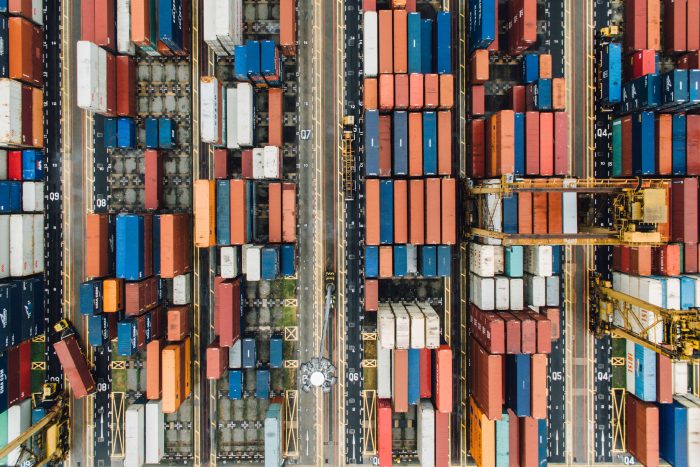May 18, 2018
Everyone seems to be talking about blockchains these days. Especially after the New York conference on bitcoin and blockchain technology tripled in size this past week; bringing together over 8,500 attendees and tracking for $17 million in ticket sales.
Despite all the hype surrounding blockchain today, disruption is coming to the industry with the promise of delivering a more transparent and efficient system of managing logistics. Adaptability is more vital than ever.
According to Deloitte and the World Economic Forum, by 2025, 10% of the global GDP would be based on blockchain platforms and will create a massive impact in the $8-trillion logistics sector.
A report from DHL points out that implementing blockchain in logistics could remove the need for intermediaries, while also verifying, recording and coordinating transactions without the need for third parties. This, in turn, would eliminate an entire layer of complexity from global supply chains.
Is the logistics industry ready to take the lead on blockchain? Let’s see three initiatives that are happening right now.
Fighting Fraud
One of the most significant problems in the industry is end-to-end tracking. According to the FBI, an estimated $30 billion worth of cargo is stolen in the U.S. every year.
IBM is working on the “world’s smallest computer” and bringing blockchain capability in order to provide its security advantages to the logistics sector.
This computer “packs several hundred thousand transistors into a footprint barely visible to the human eye and can help verify that a product has been handled properly throughout its long journey.” Better yet, it will cost less than 10 cents.
Solving disputes
FedEx is already testing blockchain platforms and developing industry standards. The shipping giant launched a program using blockchain to store data for dispute resolution. The project aims to identify sensitive data for senders and receivers in case of conflicts.
Dale Chrystie, VP of Strategic Planning and Analysis pointed out that they “think of blockchain as a secure chain of custody that could transform the logistics industry.”
Conflict-free businesses
Smart contracts are another blockchain application that will change logistics forever. These are similar to real-world contracts but are coded and added to the Blockchain. This computer protocol helps individuals exchange anything of value in a transparent, conflict-free way, with no intermediaries.
“The benefit of using smart contracts is that they are apps powered by decentralized networks, instead of company’s servers. Thus no single entity owns or controls the blockchain,” affirms Otto Rivera, CEO of Helpnet.
Blockchains have already begun to disrupt the logistics industry, and you may want to be in the loop. Helpnet creates systems from the ground up that incorporate Blockchain at its core.
Contact us, and we can help you identify the right blockchain solution for your needs.
Share this article:






